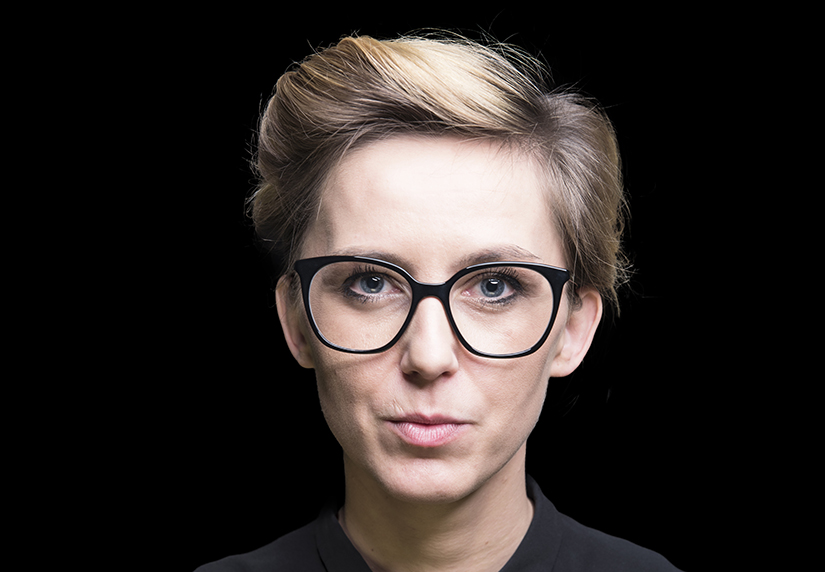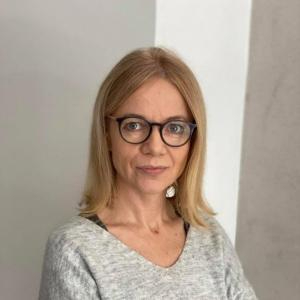Exploring social innovations: conference at a glance
SWPS University's Faculty of Social Sciences in Warsaw organized its third annual conference on social innovation on June 13-14. This year's theme was "Co-Creating Change." The event brought together more than 150 researchers, practitioners, NGO representatives, students, and policymakers for an interactive exploration of the research and practical aspects of social innovation. Most sessions were conducted in Polish, while the student projects session was held in English. The event was not just a series of presentations but a platform for engaging dialogues, interactive workshops, and thought-provoking discussions.
Visit the conference website
Common good: a pillar of social innovation
The "Social Innovation: Co-Creating Change" conference began with an exhibition featuring graduate projects from SWPS University's Faculty of Design in Warsaw. Bartosz Grześkowiak, a designer and graphic artist from the School of Form, curated the exhibition.
The first day focused on the concept of the common good as a fundamental value for social innovators. Prof. Monika Kostera from the University of Warsaw delivered the introductory lecture, highlighting the significance of management for the common good. She emphasized reflexivity and social sensitivity as essential qualities for those designing social innovations.
A social innovator is someone who reflects on what they have observed. Social sensitivity is a core value.
Professor Monika Kostera
University of Warsaw
Professor Kostera also expressed optimism about the future, emphasizing that our diversity and differences are sources of hope. She underlined that "our hope lies in what is different and angular," encouraging attendees to look beyond simplistic solutions to complex problems. She advocated for embracing the unconventional and developing transformative competencies through proactive action, co-creation, collaboration, and value sharing.
Moreover, Prof. Kostera suggested considering science as a common good, pointing out that "science acts as a buffer between the present and possible futures." This perspective urges social innovators to address the challenges of the future. One key takeaway from her lecture was, "Let's put the Earth at the center again!" This theme re-emerged on the second day of the conference as participants discussed climate challenges, a crucial concern for the future.
How innovations are born
Conference participants shared their research findings during the paper session, providing diverse perspectives. Dr. Marcin Bielicki discussed the state's and incubators' roles in creating social innovations. Weronika Skorupska talked about cooperatives, noting their resurgence in Poland after a decline in the 1990s. Drs. Agata Anacik-Kryza and Anna Sieroń highlighted the importance of universal design in university education. Attorney Jacek Olejarz concluded the session with a presentation on the legal aspects of implementing social innovations in NGOs and impact start-ups.
The financing of social innovations and the presentation of implemented solutions were also significant topics at the conference. Adrian Migoń, representative of Fundacja Inkubator Technologiczy and Youth Business Poland, and Adam Bartkiewicz from Digital Ocean Ventures shared the investors' perspective. They emphasized the need for solid teams and scalable ideas. They encouraged the listeners to seek inspiration by observing trends and new EU regulations, especially in terms of ESG (Environmental, Social, and Governance) standards.
Representatives of various funding programs discussed opportunities and requirements. Iwona Gawrycka represented SWPS University's Startup Booster for Social Impact program, Zuzanna Kot spoke about the "Laboratorium Innowatora," an initiative of Investin, and Ewa Jakubowska promoted the TransferHUB funding program of the Foundation for Social and Economic Initiatives.
The session ended with presentations of selected social innovations. Agata Zioło from Fundacja Przedsiębiorczych Kobiet highlighted the challenge of developing a profitable business model for innovations with social impact. Bartosz Grześkowiak shared his experience of creating a Polish-Ukrainian picture dictionary for refugees with the participation of students and emphasized the importance of acting quickly and recognizing that a single project cannot solve all problems. Katarzyna Janota from Tuser spoke about their app that helps children develop social skills. She also pointed out the significant differences between the designed and implemented solutions due to user feedback during testing.
The first day of the conference offered a variety of activities. Some participants worked on designing the future under the guidance of Katarzyna Janota. Others played a STRESmisja game with Katarzyna Barcińska, Patrycja Sawicka-Sikora, and Katarzyna Archanowicz-Kudelska to learn stress management techniques. Those who were interested in developing their innovative ideas took part in a table discussion with representatives of the various funding organizations, including SWPS University's Startup Booster, TransferHUB, INVESTIN, the Innovator's Lab, and Digital Ocean Ventures.
Social innovations: transforming the surrounding environment
The second day of the conference was dedicated to the role of social innovation in shaping the surrounding environment. It began with a lecture on transformative behavior in organizations by Prof. Katarzyna Januszkiewicz, Dean of the Faculty of Social Sciences in Warsaw. She emphasized that transformative behavior involves influencing and changing our environment, a core skill for social innovators.
Prof. Januszkiewicz highlighted the increasing demand for tools to support change implementation in organizations, which is being addressed by interdisciplinary research teams in the academic community. She also stressed the significance of collaborative efforts across sectors and disciplines for effective change.
Throughout the day, various academic discussions delved into specific areas of social innovation and showcased the work of innovators. Klaudia Kryńska presented research on agroecological farms in Poland, with a focus on female farmers. Andrzej Górz discussed the Jazdów estate in Warsaw, blending its historical context with current observations. Maciej Kamiński explored social innovations in seaside towns, using examples from several European cities. Dr. Alicja Koperska concluded the session by presenting the findings of a scoping review on how social innovators address exclusion and inclusion.
We believe that collaboration is important to achieving the goals of social innovation and maximizing social impact. It enables us to draw on different experiences and reach a shared understanding of social challenges and their consequences.

Magdalena Kubów, Ph.D. / Assistant Professor
Faculty of Social Sciences in Warsaw, SWPS University
SWPS University: Working with and for the environment, addressing tomorrow's key challenges
The conference featured the SWPS University Climate Roundtable, an innovative discussion format aimed at engaging diverse stakeholders to address climate change and transform the environment for a better future. Dr. Marzena Cypryańska-Nezlek from the 4CAST Center for Climate Action and Social Transformations moderated the debate, which included representatives from NGOs, public administration, and business. The goal was to support future innovators in designing, implementing, and developing initiatives to tackle tomorrow's challenges.
The starting point was that climate change is our most urgent and unifying challenge. The roundtable emphasized the need for systemic change through interaction, cross-sector cooperation, and intergenerational dialogue.
We work in very different fields and have distinct goals, but we share the pursuit of positive social change.

Marzena Cypryańska-Nezlek, Ph.D. / Assistant Professor
4CAST Center for Climate Action and Social Transformations
The conference concluded with a student-led session dedicated to discussions on contemporary challenges, networking, and project presentations. Students from SWPS University and the European University Viadrina in Frankfurt (Oder) proposed social innovations to address issues such as intergenerational change, aging, stress, burnout, homelessness, poverty, dyslexia, the development of artificial intelligence, the lack of digital skills, and climate change.
Students presented solutions using modern technologies (such as VR, social media, and eye-tracking), including:
- Vice Versa: Reverse mentoring in companies
- EduSim: An online educational platform
- Zenbot: An app to help reduce stress
- EduEmpower Research Club: An online platform to reduce student burnout
- Neuro Legado: An online platform to support dyslexic children in school
Student projects also included collaborations with NGOs, such as "Ageing Joyfully Together," and educational workshops on AI, like "Summer School." An innovative project, EcoLumus, featured a lamp powered by energy-producing mushrooms.
Parallel to the student presentations, Dr. Joanna Kwaśniewska from the Faculty of Psychology in Warsaw led a workshop on creative techniques for solving environmental problems.
A key takeaway from the conference was that all social change solutions should be based on cooperation and value sharing, regardless of the specific context.
Meet the conference organizing team
The conference was co-created on a participatory basis by an interdisciplinary team led by Dr. Karolina Osterczuk. The team members included:
- Katarzyna Barcińska
- Aleksandra Becker
- Dr. Marzena Cypryańska-Nezlek
- Iwona Gawrycka
- Bartosz Grześkowiak
- Prof. Katarzyna Januszkiewicz
- Dr. Magdalena Kubów
- Dr. Agnieszka Młodzińska-Granek
- Małgorzata Nadziejko
- Dr. Patrycja Radek
- Dr. Mikołaj Rogiński
- Dr. Włodzimierz Świątek